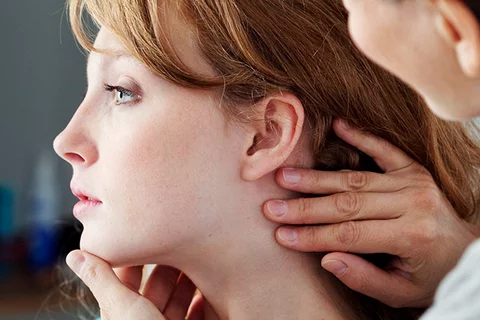Get a routine skin cancer check to protect your skin health with early detection.
Extensive Dermatology Understanding: Attending To Acne Issues, Mole Worries, and Eczema Effects
When it concerns skin health, comprehensive dermatology expertise is key; it encourages people to tackle typical skin concerns such as acne, mole irregularities, and dermatitis with self-confidence. Comprehending acne treatments, acknowledging possible skin cancer check in moles, and managing eczema triggers can significantly enhance skin wellness - mole removal. This short article will certainly explore these subjects, offering an insightful consider the science behind these usual skin issues - an expedition that guarantees to inform and educate
Recognizing the Essentials: What Is Acne, Moles, and Eczema?
Acne is a skin condition characterized by irritated or infected oil glands, frequently noticeable as pimples or areas, primarily on the face, back, and breast. Moles, on the other hand, are small skin growths caused by collections of pigmented cells; they can appear anywhere on the body and differ in shade and size.
The Science Behind Acne: Reasons, Kinds, and Therapies
The complex science behind acne begins with understanding its development device. This complex procedure, influenced by various aspects, leads to various sorts of acne. The short article will certainly additionally touch upon effective treatments offered to handle and treat this common skin condition.
Acne Formation Device
An overwhelming bulk of people will certainly experience the usual skin problem recognized as acne at some factor in their lives. Acne development starts with the overflow of sebum, an oily compound secreted by sebaceous glands in the skin. When these stopped up pores come to be contaminated with Propionibacterium acnes, a germs normally existing on the skin, swelling happens, resulting in visible acne.

Effective Acne Therapies
Virtually everybody will certainly grapple with acne at some factor, making a clear understanding of effective acne treatments important. Numerous treatments target different facets of acne, such as inflammation, oil manufacturing, and microorganisms. Topical treatments like benzoyl peroxide and salicylic acid can get rid of microorganisms and unblock pores. Anti-biotics can combat swelling and germs. For severe situations, isotretinoin, a powerful medication, can lower oil manufacturing. Non-drug therapies include light therapy and chemical peels. It is very important to keep in mind that not all treatments will help everyone, as acne's causes and severity differ. Skin specialists frequently tailor treatments to private demands. Regular use the selected treatment and patience are essential to seeing enhancement.
Mole Matters: Identification, Evaluation, and When to Seek Medical Attention
Moles, typical skin growths, require careful identification and regular evaluation for optimal skin health (dermatologist near me). Recognizing the regular look of one's moles, together with any type of changes that may take place, is critical. Motivate clinical interest should be looked for when specific indications, which will be reviewed, are identified
Comprehending Mole Identification
How does one compare a harmless mole and one that may require clinical interest? Recognizing the attributes of normal moles is crucial. A typical mole is generally rounded or oval, has a smooth edge, and is no larger than 6mm in size. The shade must correspond and can vary from pink, tan, brown, or black. Moles usually show up during childhood years or teenage years, and by adulthood, the majority of individuals have between 10 to 40 moles. Nonetheless, moles that transform in size, shape, or shade, end up being itchy or hemorrhage, or appear after age 30 can be alarming. These abnormalities don't instantly indicate skin cancer cells but are reasons to consult a skin specialist. Understanding mole identification is the primary step in skin wellness management.
Performing Routine Mole Exams

Identifying Crucial Clinical Indicators
When should one seek clinical focus concerning moles? It is vital to get in touch with a skin specialist as soon as uncommon features are discovered. These may include asymmetry, uneven boundaries, differing shades, a diameter larger than 6mm, or developing dimension, form, or shade. Called the ABCDE's of mole evaluation, these changes may direct to deadly cancer malignancy, a harmful form of skin cancer. Additionally, any bleeding, itching, or non-healing sores associated with moles require instant medical attention. An individual should likewise beware if new moles show up after the age of 30 or if there's an abrupt boost in the variety of moles. Routine self-examinations matched with specialist assessments ensure early discovery and effective treatment of possible skin abnormalities.
Dermatitis Explained: Causes, Symptoms, and Taking Care Of Flare-Ups
Although dermatitis might appear as an easy skin irritability to the untrained eye, it is, in reality, a complex dermatological problem with a multitude of prospective reasons. Dermatitis, also referred to as atopic dermatitis, is typically triggered by a mix of genetic and environmental aspects. Taking care of eczema normally entails identifying and preventing triggers, keeping an excellent skin treatment routine, and utilizing suggested therapies.
Practical Skin Treatment Tips to avoid and Handle Acne, Moles, and Eczema
Comprehending and attending to skin problems such as acne, moles, and eczema need functional and reliable skin care routines. Routine cleansing with gentle, non-irritating products helps maintain skin health and prevent acne. Sun block application lowers mole threat and decreases dermatitis flares activated by sun exposure. Moisturizing, particularly for those with dermatitis, is essential to preserve skin hydration and barrier function. A balanced diet regimen abundant in antioxidants can boost skin health and reduced inflammation, possibly minimizing acne and eczema severity. Normal skin checks assist in very early mole discovery, possibly avoiding skin cancer. While these suggestions can mitigate skin troubles, they're not an alternative to professional skin-related guidance. Constantly speak with a skin doctor for persistent or extreme skin conditions.
Professional Dermatology Treatments: A Review of Modern Solutions
What are the contemporary remedies provided by specialist dermatology treatments? Skin doctors today have a broad selection of effective therapy alternatives to handle numerous skin conditions. For index acne, retinoids and prescription antibiotics are suggested to manage the problem, while chemical peels and laser therapy are utilized for extreme cases. With moles, expert elimination is performed if they present a wellness risk. This can be done with medical excision or laser elimination. On the other hand, eczema is often treated with topical corticosteroids to handle signs and symptoms, and phototherapy for consistent instances. In addition, developments in biologics have actually revealed promise in treating extreme dermatitis. All these treatments are under the professional advice and care of skin specialists, ensuring safe and efficient monitoring of skin disease.
Final thought
Recognizing skin-related concerns like acne, mole irregularities, and eczema is important for efficient therapy. Acne monitoring calls for expertise of various treatment choices, while mole assessment can bring about early detection of skin cancers. Eczema management involves recognizing triggers and implementing suitable treatments. Therefore, in-depth dermatology knowledge is essential for avoiding and managing these skin problems, stressing the demand for expert dermatologist care to enhance skin wellness.